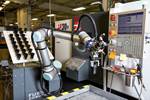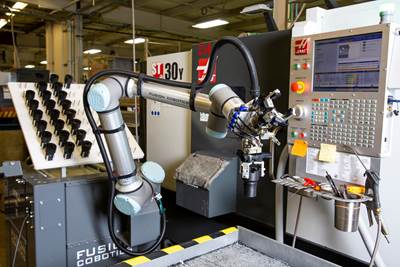Closing Arguments: The Future of Plastics Processing
As I depart the “big chair” in charge of content, rather than reflect on the past, I project on the future.
I’ve been a proud and grateful observer of the plastics industry for more than 38 years, and even prouder and more grateful to have had the opportunity to report and comment on new technologies and developments impacting North American plastics processors.
In my career, I have been chief editor (in my case now, as editorial director) of two different publications serving this industry: Plastics World in the 1980s, and Plastics Technology since 2009. (I actually was hired at PT in 1997 and served as the brand’s publisher from 1999-2010 before shifting back to editorial shortly after NPE2009.)
As I wrote in this space last issue, my colleague, Tony Deligio, will take over as chief editor with the September issue of this publication. Tony will be charged with devising a content strategy for the brand, and with more than 20 years of experience in this industry is more than up to the task.
I am not going anywhere. I will continue to report on extrusion technology and auxiliary equipment for the brand, as well as develop content for our conferences. But this will be my last appearance on the “editorial” page.
More often than not, I have found that chief editors who are moving on from that role tend to wax nostalgic on the most compelling things they have witnessed and reported on in their tenure. I could certainly have done that here, as I certainly have had a front row chair to a lot of growth and change. But I’ll take a different tack here by focusing on the future — what I believe our audience of plastics processors will be facing in the years ahead.
Sustainability: This isn’t going anywhere. I first heard the term 20 years ago, when a molding machinery sales executive told me over dinner this was going to be the “next big thing” in plastics. I dismissed it at the time as the buzzword of the day. Swing and a miss for me, as 20 years later we are still talking about it. Make no mistake: You are going to be asked about your sustainability initiatives, and are going to be required to make changes if they don’t pass muster in the eyes of your customer.
This might mean paying closer attention to energy consumption and getting a handle on your carbon footprint. It might mean using more reclaim in your production process, or perhaps running more bio-based polymers. It might mean taking steps to cut down on production scrap, or perhaps figuring out how to utilize less plastic in the production of your products.
Automation: In this space, on many occasions, I have lamented on how far behind North American processors have been in deploying automation in their facilities. All those times, I was really talking about robots and injection molding. But, like sustainability, automation now means a lot more than removing parts from a mold. We’ve heard about the “skills gap” for years, about how difficult it is for all manufacturers to find, train and maintain factory workers. I don’t think it’s going to get easier. Every processor needs to examine ways in which automation can be utilized to do jobs human beings don’t want to do anymore, not just on the plant floor but in the warehouse and even in the “front office.”
Artificial Intelligence: In a sense, this is an extension of automation, with machines automatically making adjustments based on real-time changes that ordinarily would be handled by people. In my opinion, this is indeed the next big thing. Some processors are ahead of the curve. I was blown away by what I saw in this area at NPE2024. I think we are going to see much more development in AI in the future, and suspect it will be all over the place at next year’s K Show.
There are probably three or four more things I could add to this list if I dusted off my crystal ball. I’m guessing Tony will have some thoughts that he will be sharing with you beginning next month.
Related Content
Changes Afoot for Plastics Technology
Jeff Sloan named brand manager of PT. Tony Deligio to head PT’s editorial efforts beginning in September.
Read MoreNot Your Grandpa’s Plastics Processing Operation
New materials and machinery offer processors the means to run their businesses more efficiently and more inline with the circular economy. But you have to say yes.
Read MoreAttention Molders: Time to Get Serious About Sustainability
If you’re not looking at ways to make your injection molding operation more sustainable, perhaps you’d better get started.
Read MoreSharpen Your Pencils: Participate In ‘Top Shops' Benchmarking Survey
The free, anonymous survey of injection molders is open for responses, and all shops that complete the questionnaire will receive a customized report of the results. Honorees also will be recognized in the magazine.
Read MoreRead Next
Attending NPE2024 From the Perspective of a Molder
NPE2024 has come and gone, but before it’s completely in our collective rearview, Plastics Technology asked Rodney Davenport, vice president at injection molder CH3 Solutions, for a processor’s perspective on the big show.
Read MoreFour Industry 4.0 Tech Adoption Insights from Indiana Plastics Manufacturers
As more plastics manufacturers step into the Fourth Industrial Revolution, insights have emerged about how best to approach the digital transformation journey.
Read MoreFor PLASTICS' CEO Seaholm, NPE to Shine Light on Sustainability Successes
With advocacy, communication and sustainability as three main pillars, Seaholm leads a trade association to NPE that ‘is more active today than we have ever been.’
Read More























